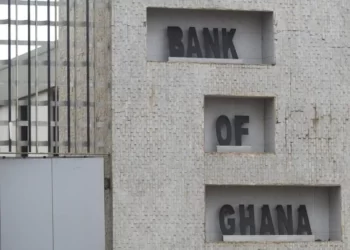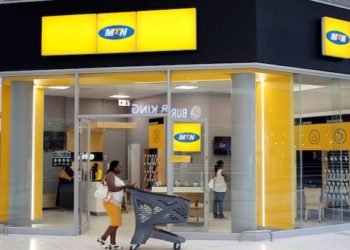GCB Bank PLC has announced its inability to proceed with the payment of dividends for the financial year ended December 31, 2024, despite prior approval at its Annual General Meeting (AGM) held on May 2, 2025.
The news has caught many shareholders by surprise, especially as the bank had maintained a strong performance over the past year, leading to optimism about its dividend outlook.
In a statement released by the Corporate Affairs Department, the bank explained that the suspension of the dividend payment stems from regulatory constraints following engagements with the Bank of Ghana (BoG). The bank revealed that it had been advised by the regulator that, due to non-compliance with the single obligor limit—arising from the conversion of restructured cocoa bills into bonds, the BoG could not grant a “no objection” for the dividend payment at this time.
The single obligor limit is a prudential regulatory measure designed to prevent banks from overexposing themselves to a single borrower or entity. By exceeding this limit, a bank assumes higher risk, potentially threatening financial stability. GCB’s breach, though unintentional, reportedly resulted from the government’s decision to restructure cocoa bills and convert them into longer-term bonds—a move that altered the bank’s exposure profile.
According to the bank, the conversion changed the structure of its assets, inadvertently placing it in a position of non-compliance with the BoG’s regulatory ceiling for single obligor exposures. While this situation was beyond GCB’s direct control, the Bank of Ghana has remained firm on enforcing prudential rules to safeguard the integrity of Ghana’s banking system.
GCB Bank, however, emphasized that it is working closely with the regulator to rectify the issue. “The Bank is actively engaging with the regulator to resolve this matter as quickly as possible and to restore full compliance,” the statement said.
Shareholders Left in Uncertainty
The announcement has left many GCB shareholders disappointed and anxious, particularly retail investors who rely on dividend payouts as a source of income. Many had anticipated a healthy return following what was expected to be a strong financial year for the bank.
The decision also raises questions about the timing and communication of the issue. Some market watchers believe that if the regulatory challenge was identified earlier, the bank might have delayed the dividend declaration until full compliance was achieved. Nonetheless, GCB’s management has assured investors that their interests remain protected, and that the suspension does not signify financial weakness.
In the statement, the bank reiterated its commitment to financial soundness and shareholder value, noting, “GCB Bank PLC regrets any inconvenience this development may cause and assures shareholders and stakeholders of its unwavering commitment to regulatory compliance, financial soundness, and the protection of shareholder value.”

Market analysts have described the development as a temporary regulatory setback, emphasizing that it does not necessarily reflect underlying financial distress at GCB. The issue is purely compliance-related and should be resolved once the regulator is satisfied with corrective measures.
Still, the announcement could impact investor sentiment in the short term, especially in a market where dividends often serve as a confidence signal. Analysts expect GCB’s share price on the Ghana Stock Exchange (GSE) to experience mild fluctuations in the coming days as shareholders digest the news.
Others, however, believe this incident underscores the importance of transparency and proactive risk management in the banking sector. With increased regulatory scrutiny following the 2017–2019 banking sector cleanup, banks are expected to maintain the highest compliance standards to avoid sanctions or reputational damage.
GCB’s Assurance and Next Steps
Despite the temporary setback, GCB Bank remains optimistic about resolving the issue quickly. Management is reportedly engaging the Bank of Ghana to clarify the implications of the cocoa bill restructuring and to find a path back to full regulatory compliance.
The bank’s strong track record, extensive branch network, and history of stability continue to position it as one of Ghana’s most reliable financial institutions. GCB has consistently emphasized its role in supporting Ghana’s economic development through lending to key sectors, including agriculture, energy, and small businesses.
Observers say that once the compliance matter is resolved, the regulator could allow the bank to resume dividend payments, possibly in the next financial cycle or through a special arrangement approved by the BoG.























